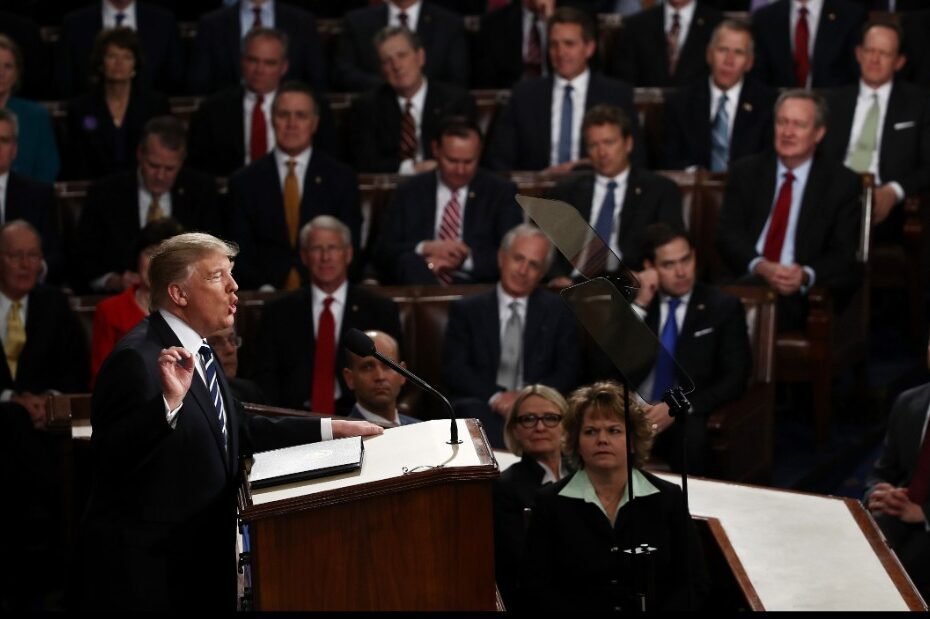the lead-up to the third anniversary of the January 6th insurrection, the U.S. Supreme Court has taken a significant step by agreeing to tackle a crucial question concerning the eligibility of a president who attempted a coup to stay in office. The central issue revolves around whether a former president, after a failed attempt to overturn election results, can run for president again. This legal dilemma brings attention to Section 3 of the 14th Amendment, drafted post-Civil War to bar Confederate insurrectionists from holding office. This marks an unprecedented challenge for the Supreme Court, as the insurrectionist in question is a former president rather than a slaveholding senator or congressman from a seceding state.
Oral arguments for this pivotal case are scheduled for February 8th, coinciding with Nevada’s Republican caucus. This decision could have far-reaching implications not only for the 2024 presidential election but for the essence of American democracy itself. While Colorado and Maine have already decided to exclude Trump from their ballots, many other states are awaiting the Supreme Court’s verdict. The potential impact of this decision is underscored by concerns raised by Trump’s lawyer, Alina Habba, who admitted that Trump fears conservative justices may rule against him due to political considerations.
Habba’s comments suggest that certain justices might feel indebted to Trump for their appointments, potentially influencing their judgment. Notably, the Supreme Court has become a crucial battleground, with several states facing efforts to prevent Trump from appearing on their ballots. The court’s decision could shape the political landscape and determine the course of the upcoming presidential race.

One of the key figures in this unfolding drama is Justice Clarence Thomas, whose wife, Virginia Thomas, played a material role in the events leading up to the January 6th insurrection. House Democrats have called on Justice Thomas to recuse himself from the case due to a perceived conflict of interest. They argue that his impartiality is reasonably questioned, given his wife’s involvement and the financial incentive for their household if Trump is reelected.
The skepticism surrounding the Supreme Court’s impartiality is not unfounded. Critics argue that the court has displayed a reactionary and partisan stance rather than adhering to conservative principles. Justice Thomas’s potential conflict of interest adds another layer of concern about the court’s ability to make an unbiased decision.
Congressman Adam Schiff, a former member of the January 6th select committee, expressed his reservations about the court’s objectivity. He highlighted the clear conflict of interest involving Justice Thomas and the potential erosion of public trust in the court’s credibility. Schiff emphasized that if the court follows the Constitution, it should be a straightforward decision, as the 14th Amendment disqualifies individuals who incite insurrection against the Constitution.
Despite the lack of confidence in the court’s impartiality, Schiff acknowledged the potential positive outcomes if the court rules against Trump’s eligibility. Removing Trump from the ballot could redirect the political discourse towards policy differences rather than a cult of personality. However, Schiff also cautioned about the risk of Trump instigating violence in response to an unfavorable court ruling, as witnessed on January 6th.
The interview further delved into the consequences for the country if the court allows a figure who incited an insurrection to run for president again. Schiff expressed concerns about the nullification of Section 3 of the 14th Amendment, rendering it meaningless. Additionally, he highlighted the potential damage to the court’s reputation, portraying it as another partisan institution aligning with a corrupt president.
In conclusion, Schiff underscored the broader implications of such a ruling, including the normalization of a disqualified individual as a major party nominee and the potential threats to democracy. He cautioned against the perils of another Trump presidency, emphasizing the need to uphold democratic principles and the rule of law.
This decision by the Supreme Court emerges as a critical moment in American history, where the judiciary’s role in safeguarding the democratic process is under intense scrutiny. As the nation awaits the oral arguments on February 8th, the outcome of this case will undoubtedly shape the trajectory of American politics and the perception of the Supreme Court’s role in upholding the Constitution
